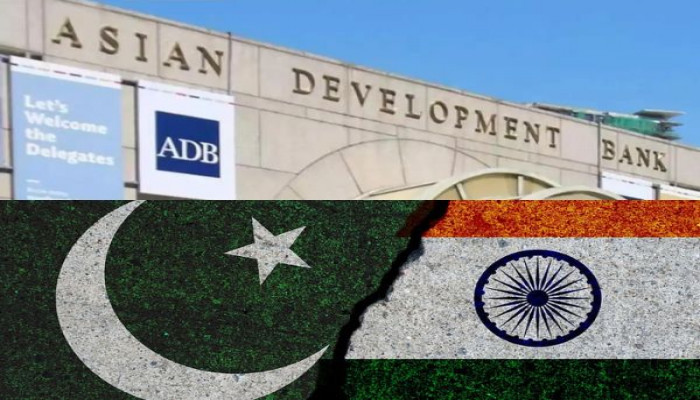India flags misuse risk in ADB’s $800 million aid to Pakistan, demands strict oversight
- In Reports
- 04:40 PM, Jun 04, 2025
- Myind Staff
India vehemently protested the recent Asian Development Bank (ADB) approval of a $800-million funding programme for Pakistan. It expressed serious concerns over potential misuse of funds, especially in the context of Pakistan’s rising defence expenditure and weakening domestic resource mobilisation. India expected the ADB to closely monitor Pakistan’s implementation of the policy matrix to ensure the intended outcomes.
Top Indian government sources indicated that New Delhi cautioned the ADB about the risk that Pakistan could divert the financing away from developmental purposes. India highlighted a clear disconnect between Pakistan’s increasing defence expenditure and its declining tax-to-GDP ratio. It suggested that policy-based loans, being fungible, might indirectly support higher military allocations.
India pointed out that Pakistan's tax-to-GDP ratio dropped from 13.0% in FY2018 to 9.2% in FY2023. This figure stood far below the Asia-Pacific average of 19%. Despite this decline in domestic revenue, Pakistan significantly increased its defence spending during the same period. Indian officials said this raised red flags about Pakistan’s fiscal priorities.
On June 3, the ADB approved the Improved Resource Mobilisation and Utilisation Reform Program – Subprogram 2. The programme aimed to strengthen Pakistan's public finance. It included a $300 million policy-based loan and the ADB's first-ever policy-based guarantee of up to $500 million. The guarantee was expected to mobilise up to $1 billion in financing from commercial banks.
One of the sources said, "India cautioned the ADB regarding the possibility of misuse of its resources. The linkage between Pakistan’s increase in expenditure on its military, as opposed to on development, cannot be fully explained solely in terms of its domestic resource mobilisation."
India further noted that although ADB management highlighted certain reform improvements by Pakistan, previous programmes funded by both the ADB and the IMF had not succeeded in establishing a sound macroeconomic policy environment. Indian sources said that if those programmes had been effective, Pakistan would not have approached the IMF for its 24th bailout.
The sources added, "Such a track record calls into question both the effectiveness of the program designs, their monitoring and their implementation by the authorities."
They said Pakistan’s poor implementation record stemmed from the military’s deep-rooted involvement in economic matters. They warned that this involvement created risks of policy reversals and reform slippages, as seen in the past.
They stated, "Even when a civilian government is in power now, the army continues to play an outsized role in domestic politics and extends its tentacles deep into the economy."
Indian sources reiterated, "India expects the ADB to closely monitor the implementation of the policy matrix to achieve the intended outcomes."
India also emphasised that Pakistan’s fragile economy posed credit risks to the ADB itself. It stated that Pakistan’s continued dependence on external debt raised concerns about the long-term sustainability of such exposure. Officials cited Pakistan’s high debt-to-GDP ratio and poor credit rating as key issues. They urged the ADB to stay vigilant to protect the bank’s financial health and long-term stability.







Comments